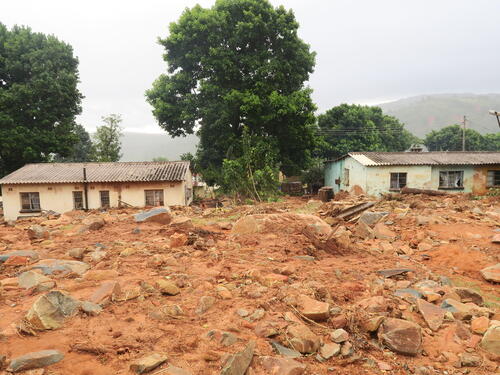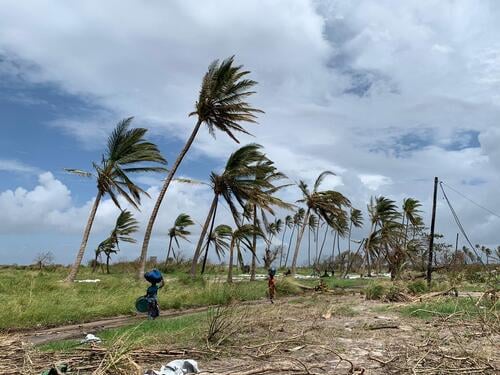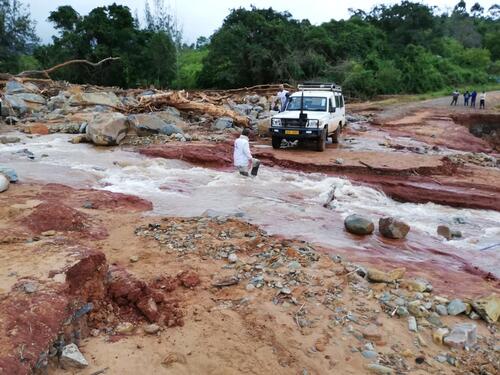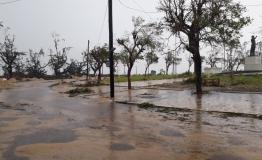Communities living in Chimanimani district, in the mountainous province of Manicaland, Zimbabwe, are slowly coming to terms with the havoc wreaked by Cyclone Idai, which resulted in the deaths of more than 169 people in the areaaccording to the Civil protection Unit.
Few will forget the night of 15 March 2019, when winds of 200 kilometres/hour tore through the valley, bringing such heavy rains that rivers and their tributaries burst their banks, and landslides washed entire houses away. Each person in the community has a different story to tell. Heavy rock falls caused some people to experience what felt like an earthquake. Others heard sounds like heavy trucks moving.
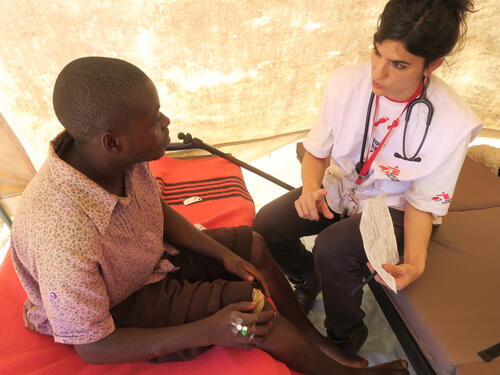
A community in shock
Their stories speak of a community that is still in deep shock. In these small communities, almost everyone knows each other, and everyone has been affected. Children, brothers, sisters, mothers, fathers, neighbours, or whole families have been lost. Many have relatives and colleagues who have still not been found. More than 328 people are reportedly missing, and 11,255 people have been displaced in Chimanimani.
Some village members have spent days digging, trying to recover the remains of loved ones buried under boulders. A smell detected or flies lingering are signs of a possible dead body underneath; some bodies have been retrieved using this cruel tactic.
This catastrophe, the first of its kind to be experienced in the area, left a trail of destruction in the community and changed the lives of many in an instant. In some communities, houses, shops and factories were completely destroyed, and all that remains are rocks and wood. Many lost everything including food, shelter, clothing and their sources of livelihood. Lifesaving medication, for chronic diseases such as hypertension and diabetes, washed away.
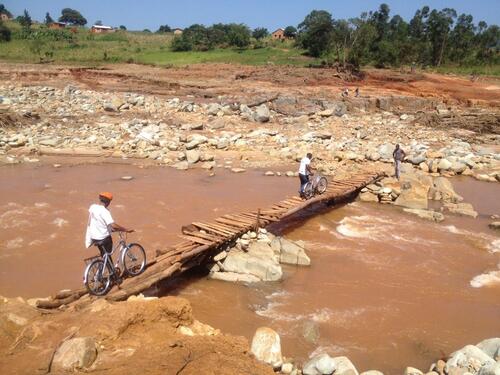
MSF responds to the devastation
As news filtered through of the destruction in Chimanimani, an MSF team quickly travelled to the area. Yet with roads and bridges destroyed, Chimanimani was completely cut off from access, making it difficult for humanitarian actors to quickly provide aid.
With the health ministry, MSF set up a stabilisation centre at ‘Skyline’, a strategic point overlooking the affected area on the outskirts of Chimanimani. The injured were ferried by Army and private helicopters from inside Chimanimani to Skyline, with the most seriously injured being transferred to the nearest referral hospital in Chipinge. A total of 80 patients were airlifted to medical centres while a total of 232 patients had received medical assistance from a combined effort of various medical practitioners as of 26 March.
With water pipes destroyed by the cyclone, the lack of clean water sources in Chimanimani is a concern for water-borne diseases like cholera and typhoid. There are still bodies lying buried under rubble in river beds, which also contaminates drinking water.
MSF teams are supporting the Ministry of Health and Child Care to provide medical assistance, including provision of chronic care medicines to people that were affected by Cyclone Idai.
Where the roads are inaccessible, the teams are resorting to walking on foot or cycling to reach patients in affected areas but difficult to reach. MSF will also continue to focus on water, sanitation and hygiene (WASH) activities and continuity of chronic care and will remain alert for any other additional needs.



